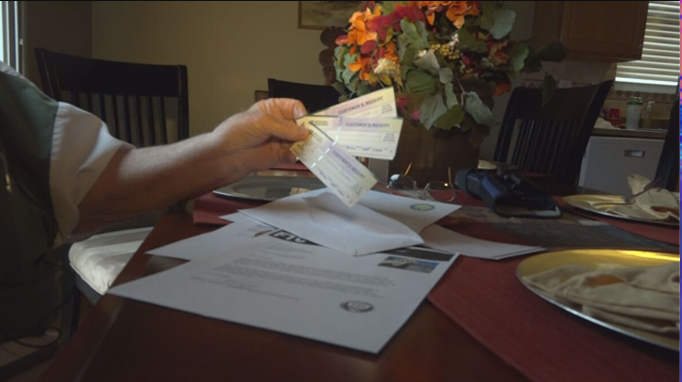A woman in Singapore lost $120,000, including $100,000 of her father's retirement savings, after falling victim to a scam involving identity theft lin
A woman in Singapore lost $120,000, including $100,000 of her father’s retirement savings, after falling victim to a scam involving identity theft linked to a Chinese criminal case. She discovered the missing funds about a month later.
According to Lianhe Zaobao, You Mei Zhen, a former Chinese-language editor, suffered a stroke in May last year that left her partially paralyzed and unable to work. While sitting in a wheelchair, the 38-year-old recounted receiving a phone call on her landline in late April from someone claiming to be a bank employee in Shanghai.
The caller alleged that You’s identity had been used to apply for credit cards, resulting in approximately 40,000 yuan (S$7,474) spent on jade purchases. The call was then transferred to a man posing as a police officer in China, who instructed her to cooperate with an ongoing investigation, warning her not to disclose details during the process.
A few days later, the “officer” informed You that a suspect had been apprehended for misappropriating around 65 billion yuan in pandemic relief funds, claiming that You was one of the victims. He showed her videos of individuals suffering from the lack of subsidies, further instilling a sense of urgency and fear.
You was convinced when the man accurately stated her name and identity card number. Subsequently, a woman named “Lu Xi,” claiming to be the deputy director of the anti-corruption bureau, contacted You, asserting that her bank deposits needed verification to ensure they were not from stolen funds.
Lu instructed You to transfer all her deposits into a UOB bank account for “notarization” and asked her to download several applications to facilitate this process remotely. You felt a bond with Lu, who claimed to be battling stomach cancer, a disease that had previously taken her mother’s life.
Believing Lu’s reassurances, You transferred the savings from their joint ICBC Bank account to her UOB account without informing her father. Lu promised that the funds would be returned after notarization, and You did not think much of it, especially as she was preparing for surgery for retinal detachment.
After the operation, when You checked her account to withdraw money for her father’s 70th birthday, she discovered that over $120,000 had been transferred out in three transactions between May 26 and 29, leaving only about $700. Her father then lodged a police report.
“I couldn’t believe that I had been scammed and didn’t tell my father the truth. He didn’t know that $100,000 was from his CPF savings,” she confessed. Later, she realized that the apps she had downloaded and the conversations with the “police officer” and Lu had been erased from her phone.
A week later, her father discovered the missing funds in his ICBC bank account, prompting You to finally confess. They filed another police report, leading to the shocking revelation that the individuals involved did not exist.
You emphasized that the scammers had employed sophisticated tactics, such as calling her landline instead of her mobile phone. “I don’t think I was scammed because I was stupid; it’s really hard to guard against these scammers,” she stated.
Now, feeling guilty about the financial burden on her father, You hopes her experience serves as a warning to others to remain vigilant and avoid becoming victims of similar scams. Police have confirmed that they are investigating the case.



COMMENTS